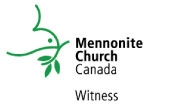Learning new Things!
At
Home
Last May, I suggested that our
grandson Arnaud move in with Grandpa and keep him company while I galavant in
countries to the east (Kenya and Israel). When I came back in July, I discovered
that Arnaud (Arnold) decided to stay for the school year. Now I get to
see close up what it is like to be a high school student here in
Burkina Faso. Arnaud had already failed 'second' level two times, but
since he was so close to passing the second time, he switched schools and went
ahead into 'première', the second last year of high school here. Maybe here was
my chance to understand why repeating school years is such a common occurence
here that it holds no sense of humiliation, like it would in North America.
Well it seems that the dull
non-social atmosphere in the evenings at his grandparents' home helps him study
better and thus get better grades. But one day he came back with only 11/20 on
his physics test. Before expressing disappointment, I wanted to understand
better what happened. Well, he told me, the prof gave a question on a subject
that was not dealt with in class! And it was 8 points! The highest grade in the
class was 12 and he and another student were second in line. Nobody else passed
the test (50% is a passing grade). So I guess he did well considering the
circumstances. Something similar appears to have happened also in the history
class. So all I could say to Arnaud, that in order to beat this trend, one
has to be a step ahead of his prof, and learn as much as he can on his
own.
The last few days Arnaud has been
bugging me for information on Canada. Every year there is a mock United Nations
conference here, and each school represents a country. His school was asked
to represent Canada, and he signed up and was chosen to be part of the team that
will prepare for this representation. He was pretty excited about visiting
the Canadian embassy in Burkina, a few weeks ago!
At Work
Have you had the experience of having
to scramble fast to learn something so that you can teach it to others? In
August, I began training a translation team for the Deuterocanonical
Scriptures, otherwise known as the Apocrypha. Since these scriptures are
translated from the Greek, I had to quickly brush up my Greek in order to teach
Greek! I have also been really enjoying learning the content of Deuterocanonical
books. The first passage that we worked on was the story of Suzanne in the
additions to the book of Daniel. It is a gripping story of how a pious woman was
falsely accused of adultery by corrupt Jewish elders, but saved from certain
death at the last minute by the shrewdness of a young man named Daniel.
We have also just completed a
workshop for our new translators, where I learned a lot on how to help
translators to sort out the differences between different Bible versions due to
variant readings in ancient manuscripts. For example, in Judges 18:30,
there is a question of whose descendants became priests of the graven image at
Dan in the northern part of Israel. Some versions (Good News Bible,
Darby, English Standard Version, NIV, New Living Translation, Jerusalem
Bible, NRSV) say that they were the descendants of Moses (Levites), and
others (King James, Jewish Publication Society, New American Standard),
say they were the descendants of Manasseh (son of Joseph). First of
all why the difference? And second of all what was a translator supposed to
choose when the most respectable versions contradict each other?
Most Bible readers probably would not
even notice the difference in such details, but a Bible translator is obligated
to make a choice. Such choices are greatly helped with a little bit of
knowledge of Hebrew, and skill in evaluating the footnotes and remarks made in
commentaries, as well as anticipating the expectations of the community for whom
they are translating.
In this case, the primary Hebrew
manuscript of reference, called the Massoretes text, says Manesseh, but the 'n'
in Manasseh is slipped in between M and SH as a superscript. Without the 'n' the
word is Moses, but with the 'n' it Manasseh. Other ancient manuscripts, Greek
and Latin, say 'Moses' and others say 'Manasseh'. Either the problem begun
with a simple spelling mistake of an 'n' dropping out, or alternatively an
'n' was inserted deliberately to avoid mentioning that descendants of Moses
could have committed this idolatry.
These last few months have been a
time of testing the limits of my intellectual and organisational
capacities. In addition to the Greek training, I have been training the Lyele
Old Testament team in Hebrew and Bible translation principles, in addition to
continuing follow-up on the Moore translation project, and completing
publication of two Old Testament booklets in Fulfulde.
Do pray for me as I seek to live a
balanced and not too much overworked life. Thanks to all of you who
responded to my Sept. 2 Newsletter. I am sorry that I was not able to answer
each on of you personally so far, but hope to take a little time in the next few
days.
Blessings for the New Year. A
year end news blip will come very shortly.
Anne Garber Kompaore
Anne Garber Kompaore

We welcome your contributions for our support and invite you to send these to:
Mennonite Church Canada Witness
600 Shaftesbury Blvd Winnipeg, MB Canada R3P 0M4
Toll-free 1-866-888-6785
http://www.mennonitechurch.ca/

